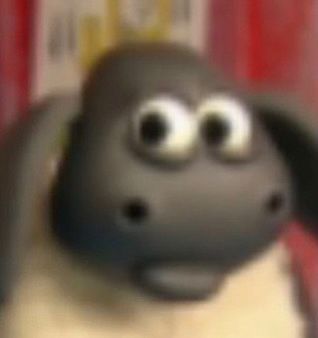 里论外几
里论外几-
名词所有格一般是在名词后面加上""s",表示"某某人的……",称为所属关系。名词所有格都有哪些形式呢?哦,是""s","of"和"双重所有格"。
""s"结构
名词所有格多用于表示有生命的名词的所属关系,此时要用""s"表示。但其构成和用法又分为以下六种情形:
1.一般情况下,是在单数名词的词尾直接加""s"。例如:
Jim"s football吉姆的足球
Kate"s cat凯特的猫
2.以-s结尾的复数名词,只能在词尾加"""。比如:
the teachers" chairs老师们的椅子
the students"books学生们的书
3.不以-s结尾的不规则复数名词,还得在词尾加""s"。你看:
Children"s Day儿童节
men"s shoes男鞋
women"s clothes女士服装
4.若表示两人各自所有的两个东西,则应在两个名词后面都加上""s",且后接复数名词;若表示两人共同所有的一个东西,则只能在后面那个名词后面加上""s",且后接单数名词。请比较:
Tom"s and Mike"s room s汤姆和迈克的房间(两人各有一间,共两间,不是共同拥有)
Tom and Mike"s room汤姆和迈克的房间(两人共同拥有的一间房间)
5.一些表示日期、时间、距离、国家名称的无生命名词,也可加""s"构成所有格。请看:
a month"s time一个月的时间
today"s new spaper今天的报纸
Beijing"s spring北京的春天
twenty minutes" walk二十分钟的路程
the city"s parks城市公园
6.如果""s"后的名词是商店、住宅等地点时,后面的名词常常要省略。比如:
at the doctor"s在诊所,在医务室
to my uncle"s到我叔叔家
"of"短语
表示无生命的所属关系时,要用介词"of"所构成的短语来表示。你看:
the legs of the table桌子的腿
the hands of the clock闹钟的指针
the name of the hill小山的名字
a map of China一幅中国地图
"变身"须知:一般来说,""s"结构都可以变成"of"短语,但是,并非所有的"of"短语都可以变成""s"结构。所以啊,对于无生命的名词所有格最好还是用"of"短语。请看:
the boy"s new bike=the new bike of the boy那位男孩的新自行车
the twins"bedroom=the bedroom of the twins双胞胎的卧室
the door of the room=the room"s door房间的门
但是,"教室里的画"要说a picture of a classroom,而不能说a classroom"s picture。
双重所有格
"双重所有格"形式,就是既含有""s"结构,又含有"of"短语,组合成了"of+"s"结构。"双重所有格"主要有两种用法:一种表示"部分",另一种表示"感情色彩"。请看:
an old friend of m y father"s我父亲的一位老朋友
the English book of your brother"s你哥哥的英语书
the lovely son of your sister"s你姐姐的这个可爱的儿子
that big nose of Tom"s汤姆的那个大鼻子
注意:"双重所有格"和只用"of"的所有格在意义上是不同的。试比较:
a photo of my mother"s我母亲的一幅照片(照片是我母亲的,照片上的人却不一定是我母亲)
a photo of my mother我母亲的照片(照片上的人就是我母亲)
 牛云
牛云-
主格 宾格 形容词性物主代词 名词性物主代词
i me my mine
you you your yours
he him his his
she her her hers
they them their theirs
 可可
可可-
恩~!名词的所有格,主要是用两种方法来表示
就是 one"s 和 of
one"s 可以表示名词的所有物,也可以表示形容词,一般用于人
人称代词时,就是my ,your,his ,her
例如: That is my mom"s room
另外,复数的形式是: students" 学生们的
而复数结尾不是s时:children"s 孩子们的
of:
连接两个名词,所有物在前.
He is a good fiend of mine.
Bank of China
I don"t like the color of the table.
一般后面of都是物品,反正不是人...
希望你满意~~
 cloud123
cloud123-
格是名词的语法范畴之一。它是名词和代词的一种变化形式,在句中表示与其它词的关系。名词有三个格:主格、宾格和所有格。在英语中有些名词可以加“"s”来表示所有关系,带这种词尾的名词形式称为该名词的所有格,如:a teacher"s book。 它有两种不同的形式:
一、在名词尾加"s
主要表示有生命的事物或自然界独一无二的某些空间和时间名词的所有格,如the world"s,the sun"s,the earth"s,today"s,yesterday"s等。
1. 单数名词词尾加“"s”,复数名词词尾没有s,也要加“"s”。
例the boy"s bag 男孩的书包
men"s room 男厕所
2. 若名词已有复数词尾又是s ,只加“"”。
例 the workers" struggle 工人的斗争
3. 凡不能加“"s”的名词,都可以用“名词+of +名词”的结构来表示所有关系。
例 the title of the song 歌的名字
4. 在表示店铺或教堂的名字或某人的家时,名词所有格的后面常常不出现它所修饰的名词。
例 the barber"s 理发店
5. 如果两个名词并列,并且分别有"s,则表示“分别有”;只有一个"s,则表示“共有”。
例 John"s and Mary"s room(两间)
John and Mary"s room(一间)
6. 在复合名词或短语中,"s 加在最后一个词的词尾。
例 a month or two"s absence
7. 作为一个整体的词组,一般在最后一个词的词尾加"s。
例 an hour and a half"s walk (步行一个半小时的路程)
Carol and Charles" boat (卡咯和查尔斯两人共有的船)
8. 不定代词后接 else , 所有格放在 else 上。
例 somebody else"s bag
9. 下列情况可以将 "s 所有格中的名词省略。
1)名词所有格所修饰的词, 如果前面已经提到,往往可以省略,以免重复。
例 This notebook is not mine, nor John"s, nor Peter"s. 这个笔记本不是我的,也不是约翰和比特的。
The dictionary isn"t mine, but Jenny"s. 这本词典不是我的,而是珍妮的。
2)名词所有格后面有指地点等的名词时, 有的在习惯上可以省略。
例 Before Christmas, there were lots of customers at the Richarsons".
the doctor"s(office)医生的诊所
my uncle"s(house)我叔叔的家
10. 起修饰作用的名词,如不表示所有关系,通常不用"s。
例 room number tooth brush
二、另外一种所有格是由介词of加名词构成的名词短语
1.名词的所有格形式除"s外,还可用of+名词构成短语修饰前面的名词或表示两个名词间的所有关系。
2. 使用名词所有格须注意: 一般地说, "s 所有格多用于有生命的东西,of 所有格多用于无生命的东西, 但也有许多例外。
1)表示天体的名词的所有格用"s。
例 the sun"s heat the moon"s surface
2)表示地区机构的名词的所有格用"s。
例 the city"s development
the government"s plan
3)表示度量与货币价值的所有格用"s。
例 ten kilometres" distance
200 dollars" worth of goods
4)表示“有关……”非所有关系的用 of 介词短语。
例 students of the school the statue of liberty
5)表示同位关系的用 of 介词短语。
例 the city of Pisa
6)表示部分或全部的用 of 介词短语。
例 the bottom of the sea the majority of people
7)表示抽象概念的用 of 介词短语。
例 the cost of living the news of success
8)名词本身带有后置修饰语或含有“the + 形容词”表示一类人,其所有格用 of 介词短语。
例 the housing problem of the poor
the skills of the workers who have been well trained
9)有些表示时间、距离等无生命和表示世界、国家、城镇等的名词,也可以在词尾加"s或“ " ”,变成相应的所有格。
例 five minutes" walk 五分钟的路程
today"s newspaper 今天的报纸
3. 双重所有格
双重所有格即 “ of + 名词"s 所有格”,表示整体中的一个或部分。用于修饰of前面的名词,但此时of前面的名词一定要有一个a(an),two,any,some,several,no, few,another或this,that,these,those之类的修饰语(这个修饰语一般不能是one和the)。双重所有格也可由“of+名词性物主代词”构成, 如:a friend of mine 我的一位朋友。
例 Do you know any friends of my husband"s?
Two classmates of my sister"s will come to join us.
注:在双重所有格中,用作介词补足成分的所有格的名词必须是确定特指的,而且一般指人。
例 an old friend of my father"s(=one of my father"s old friends)我父亲的一个老朋友
this lovely baby of my aunt"s 我姨妈的可爱的孩子
【巩固训练】
1. Jim was late for two classes this morning. He said that he forgot both of the ______.
A. rooms number B. Room number
C. Room"s number D. Room numbers
解析 本题应选A。起修饰作用的名词,如不表示所有关系,通常不用"s。本题房间和号码不是所有关系。
2. The newly-built library is a ______ building.
A. five-storey B. Five storeys
C. Five-storey"s D. Five storeys"
解析 本题应选D。
3. --- Whose umbrella is it?
--- It"s _______.
A. somebody else"s B. Somebody else
C. Somebody"s else"s D. Somebody"s else
解析 本题应选A。不定代词后接 else , 所有格放在 else 上。
4. I feel terribly hot, What"s the _____?
A. temperature of room
B. Room"s temperature
C. Room temperature
D. Temperature of room"s
解析 本题应选A。
5. _______ will make a trip around the world during the coming Christmas.
A. The evens B. The Evens"
C. The Evenses D. The Evenses"
解析 本题应选 B。
6.The girl talking to Mary is a friend of ________.
A. Mary"s sister B. Mary sister"s
C. Mary"s sister"s D. Sister of Mary"s
解析 本题应选A。 那个女孩是玛莉的姐姐的朋友。
7. The woman over there is ______ mother.
A. Julia and Shelley"s
B. Julia"s and Shelley"s
C. Julia and Shelley
D. Julia"s and Shelley
解析 本题应选A。那个妇女是单数,是一个人。应该是朱莉娅和谢莉两人共同的母亲。
8. He is very tired. He needs ______.
A. a night rest B. a rest night
C. a night"s rest D. a rest of night
解析 本题应选C。
9. ---Excuse me,where are _______ offices?
---Over there.
A. teacher"s B. teachers"
C. the teacher"s D. the teachers"
解析 本题应选D。 D项的the teachers"是复数名词的所有格形式,修饰复数中心名词offices。C项the teacher"s是单数名词所有格形式,从语法上讲不符合上下文,并且从内容上讲单个老师拥有若干offices也讲不通,故舍之。A、B项前面少了定冠词the,成了泛指的offices,无法达到交际的目的,因此也不选。
10. It is widely believed that the pull of gravity on a falling raindrop changes round shape into a teardrop shape.
A. of the drop B. the drop"s
C. drop of D. drops the
解析本题应选B。“It”是形式主语。“that…”引导的是主语从句。主语从句的谓语是“changes…into…”“把……变成……”。其中“… into…”的前后应是对应的平行结构。很明显A和D都不行,不能把“changes”误作名词。C改变了“…into…”的平行关系。只有B既能与前边的动词“changes”衔接,又能保持“…into…”的平行关系。
11. Today is September 10th. It"s_____ Day. Let"s go and buy some flowers for our teachers.
A. Teacher B. Teachers"
C. the Teachers" D. Teacher"s
解析 本题应选B。 注意不加冠词。2003年北京西城区、天津市和2002年长沙市试题都考查了这个知识点。
12. We"ll have a _____ holiday. What about going to the West Lake?
A. two days B. two-day
C. two-days D. two day"s
解析 本题应选B。 注意不同的表达方式:a two days" holiday或a two-day holiday。
13. This is my dress. That one is ____.
A. Mary B. Mary"s
C. sister D. mother
解析 本题应选B。 one指代前面所提的dress。那件裙子是玛莉的,表示裙子属于玛莉。
14. The is just around the corner and you won"t miss it.
A. bicycle"s shop B. bicycle shop
C. bicycles shop D. bicycles" shop
解析 本题应选B。名词作定语可分两种情况,一是名词所有格;二是表示中心词的性质、材料、类别或性别等时,一般直接用名词的单数形式,只有clothes, parents, goods, sports, sales 等少数几个名词必须用复数形式。此处指商店的性质,用单数形式,意思为:自行车商店就在拐角处,你不会错过它。
15. The village is far away from her indeed. It"s walk.
A. a four hour B. a four hour"s
C. a four-hours D. a four hours"
解析 本题应选D。冠词、数词、量词和名词连用有两种形式:一种是a+数词+量词的名词所有格+名词,如果数词大于“1”,量词要用复数形式,如:a four miles" journey; 另一种是:a+数词-量词+名词,这时量词要用单数形式。如:a four-mile walk.
 黑桃云
黑桃云-
名词所有格的构成
表示有生命的东西的名词及某些表示时间、距离、星球、世界、国家等无生命的东西的名词后加 "s来表示所有关系,叫做名词所有格。例如:men"s room 男厕所 // Chairman Mao"s works 毛主席著作 // a mile"s distance 一英里的距离 // a stone"s throw 一步之遥 // the moon"s light 月光
但如果该名词是以-s或-es接尾,则只在该名词后加“"”来构成所有格。例如:3 hours" walk 三小时的路程 // five minutes" walk 五分钟路程 // two miles" distance 两英里的距离
2. 用名词所有格表示处所
肉铺叫a butcher"s shop ,但通常略写为a butcher"s 。类似情况下的shop, house, office都可以省略:a tailor"s裁缝铺 // a barber"s理发店 // a doctor"s诊所 // my sister"s我姐姐的家 // stationer"s文具店 // Chaplin"s卓别林的家
